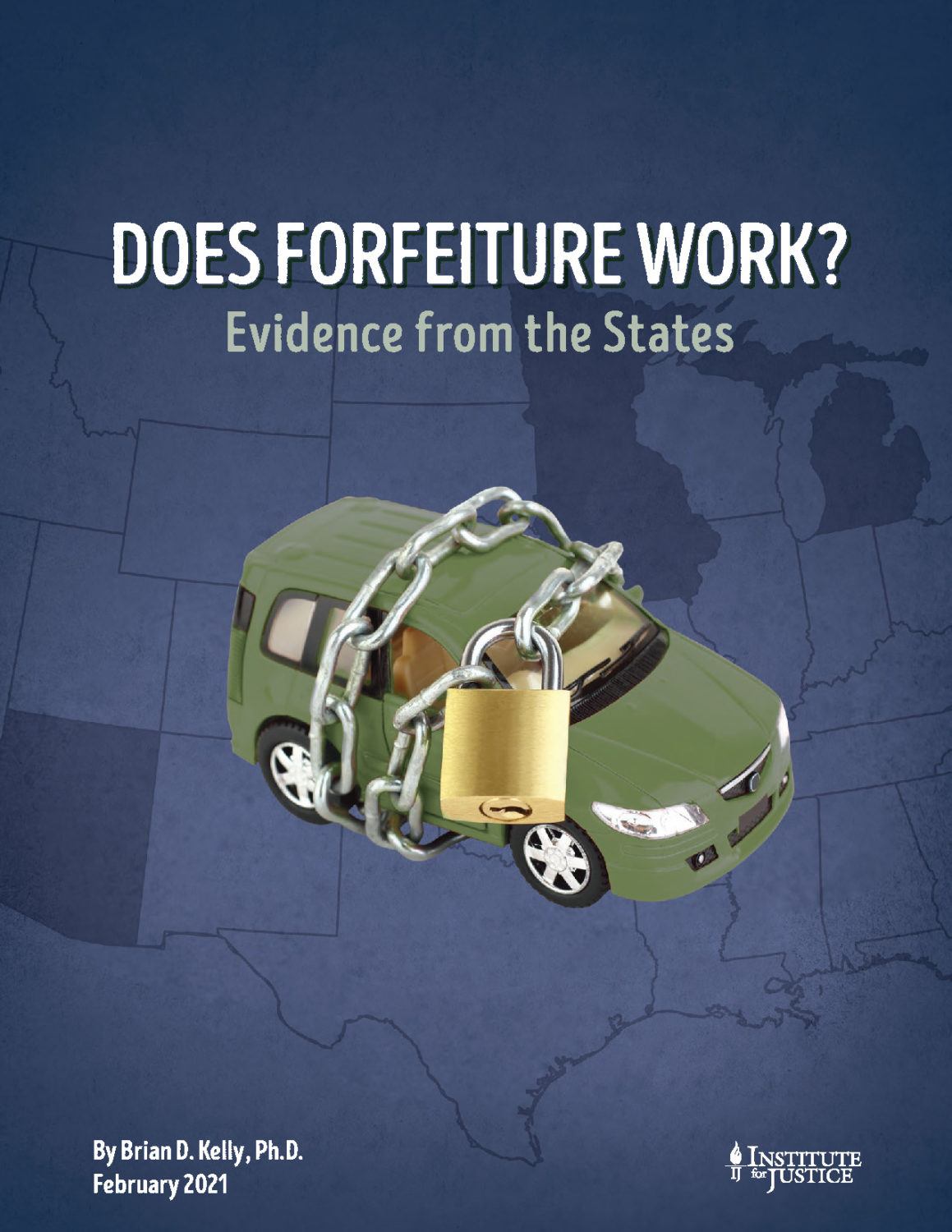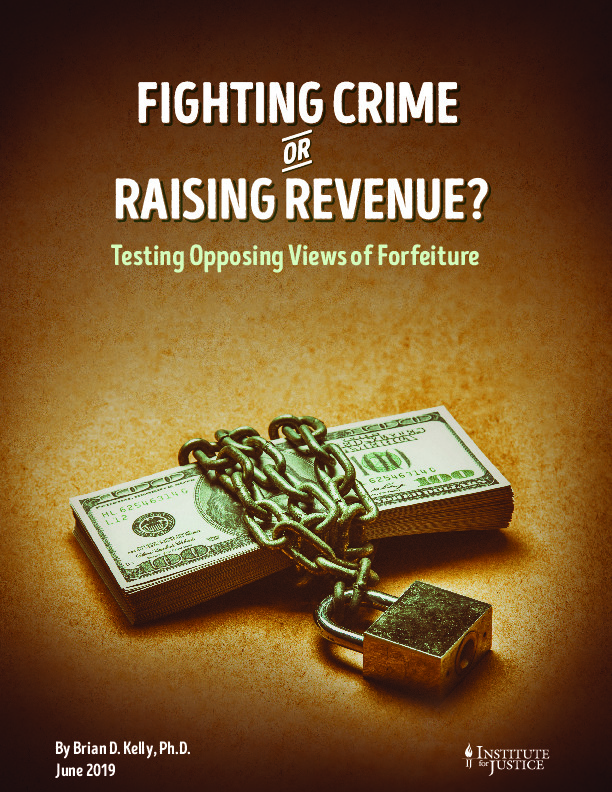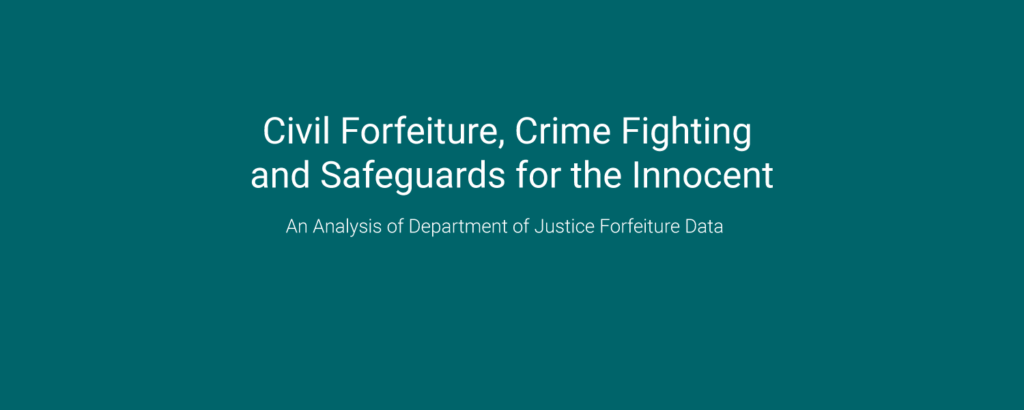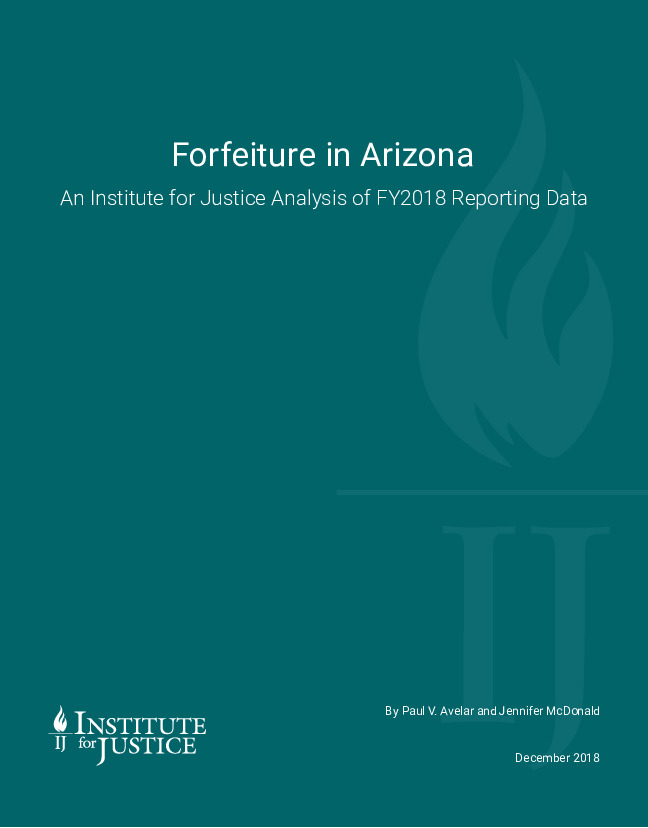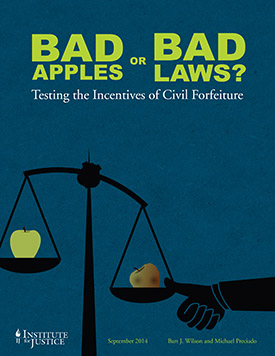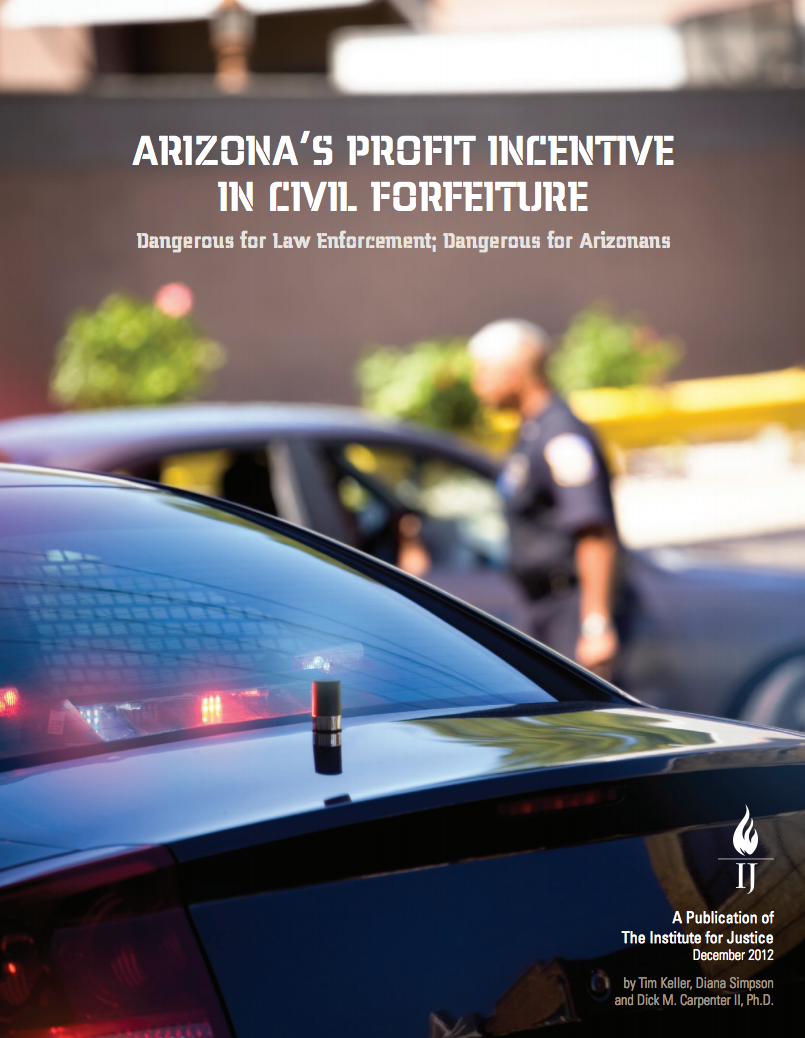The Institute for Justice’s flagship forfeiture report, Policing for Profit, grades the civil forfeiture laws of each state and the federal government and demonstrates how financial incentives to seize property, in combination with weak protections for property owners, put people’s property at risk. IJ has also published reports exposing the injustices with federal civil forfeiture programs, including “equitable sharing” and IRS “structuring” seizures.
Policing for Profit
The Abuse of Civil Asset Forfeiture
december 2020 (3rd edition)
By Lisa Knepper, Jennifer McDonald, Kathy Sanchez, and Elyse Smith Pohl
This third edition of “Policing for Profit” presents the largest ever collection of state and federal forfeiture data—17 million data points covering 45 states, the District of Columbia and the federal government. These data show forfeiture is a massive nationwide problem. Since 2000, states and the federal government have forfeited at least $68.8 billion—that we know of. Not all states provided full data, so this figure drastically undercounts property taken from people through forfeiture.
Do Americans support Forfeiture?
Do you support or oppose civil forfeiture?
As you may or may not know, “civil forfeiture” allows law enforcement officials to seize cash, cars, or other property if they suspect it is involved in a crime, even if the property owner has not been convicted or charged with a crime. Given this, to what extent do you support or oppose “civil forfeiture?”
- 8% – Strongly support
- 17% – Somewhat support
- 23% – Somewhat oppose
- 36% – Strongly oppose
- 15% – No opinion
Do you support or oppose allowing law enforcement agencies to use forfeited property or its proceeds?
Federal law allows law enforcement agencies to keep 100 percent of proceeds from property that has been forfeited. To what extent do you support or oppose allowing law enforcement agencies to use forfeited property or its proceeds for their own use?
- 7% – Strongly support
- 16% – Somewhat support
- 19% – Somewhat oppose
- 44% – Strongly oppose
- 15% – Don’t Know/No opinion
Do you support or oppose allowing law enforcement agencies to use forfeited property or its proceeds?
States like Minnesota and others have recently passed laws limiting the use of civil forfeiture, but legislators left in place a provision allowing local law enforcement to work with federal officials to bypass the tougher state law. Once federal prosecutors forfeit the property, they give 80 percent back to the local officials. Do you agree that state law enforcement officials should be allowed to participate in and benefit from forfeitures that are not permitted under state law?
- 7% – Strongly agree
- 23% – Somewhat agree
- 28% – Somewhat disagree
- 41% – Strongly disagree
IJ’s Civil Forfeiture Research
-
Frustrating, Corrupt, Unfair
Victims of civil forfeiture call it frustrating, corrupt and unfair. This first-of-its-kind survey describes the experiences of victims of one civil forfeiture program, Philadelphia’s. It finds victims typically came from disadvantaged communities, and they had extreme difficulty trying to fight the forfeiture of their property, even when innocent. It also suggests the program did little…
-
Does Forfeiture Work?
Forfeiture is a controversial tool police and prosecutors use to take and keep people’s cash, cars and even homes under the guise of fighting crime. This study is the first to look at whether state forfeiture actually fights crime or is instead used to “police for profit.” Looking at data from five states that use…
-
Policing for Profit 3
Nationwide, civil forfeiture is a massive threat to property and due process rights. So finds the third edition of Policing for Profit: The Abuse of Civil Asset Forfeiture. The report presents the largest ever collection of state and federal forfeiture data—17 million data points—and grades the civil forfeiture laws of each state, the District of…
-
Fighting Crime or Raising Revenue?
This study—the most extensive and sophisticated of its kind—combines more than a decade’s worth of data from the nation’s largest forfeiture program, the Department of Justice’s equitable sharing program, with local crime, drug use and economic data from a variety of federal sources. Results are clear: Forfeiture has no meaningful effect on crime fighting, but…
-
Forfeiture Transparency and Accountability
Most civil and criminal forfeiture activity happens with little legislative or public oversight. So does most spending from forfeiture funds. This report examines forfeiture reporting requirements and practices for all 50 states, as well as the District of Columbia and the U.S. departments of Justice and the Treasury. It finds that forfeiture programs nationwide suffer…
-
Civil Forfeiture, Crime Fighting and Safeguards for the Innocent
In 2017, the Department of Justice revived a controversial federal forfeiture program the previous administration had sharply curtailed. Using the DOJ’s own data, this paper finds that the DOJ cannot substantiate its claim that civil forfeiture fights crime. It also concludes that the DOJ’s new safeguards are unlikely to provide meaningful protection to innocent property owners.
-
Forfeiture in Arizona
In 2017, Arizona adopted incremental but important bipartisan reforms of the state’s civil forfeiture system, including new transparency requirements for forfeiture. The first full year of these new reports—for Fiscal Year 2018—is already illuminating. The Institute for Justice’s analysis of these reports finds evidence of forfeiture abuse in Arizona.
-
Seize First, Question Later: The IRS and Civil Forfeiture
Thanks to federal civil forfeiture laws, the Internal Revenue Service has seized millions of dollars from thousands of Americans’ bank accounts without proof of criminal wrongdoing. The IRS claimed the funds were illegally “structured”—deposited or withdrawn in small amounts to evade federal reporting requirements imposed on banks—and simply took the money.
-
Bad Apples or Bad Laws?: Testing the Incentives of Civil Forfeiture
Critics of civil forfeiture have long argued that allowing law enforcement to take property and pocket the proceeds creates incentives to put profits ahead of justice. Chapman University economist Bart J. Wilson and co-author Michael Preciado designed a cutting-edge experiment to see whether the rules of civil forfeiture in fact change behavior, and if so,…
-
Arizona’s Profit Incentive in Civil Forfeiture: Dangerous for law enforcement; Dangerous for Arizonans
Arizona law enforcement’s forfeiture revenue grew almost 400 percent from 2000 to 2011, with the largest share of proceeds spent on salaries and benefits.
Our Goal:
End Civil Forfeiture
We are the Institute for Justice, a non-profit civil liberties law firm that defends private property rights across the country.
The Institute for Justice aims to curtail, and ultimately, abolish civil forfeiture, one of the gravest abuses of power in the country today. IJ has filed more than two dozen cases challenging civil forfeiture nationwide. In 2019, IJ secured a landmark victory at the U.S. Supreme Court when it ruled unanimously in Timbs v. Indiana that the Eight Amendment’s Excessive Fines Clause protects Americans against state and local forfeitures.



